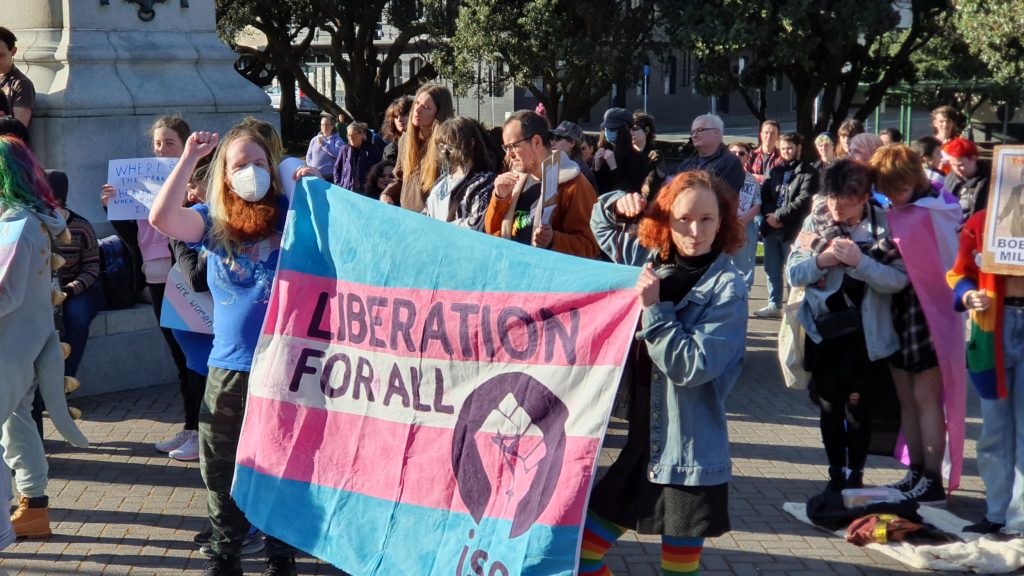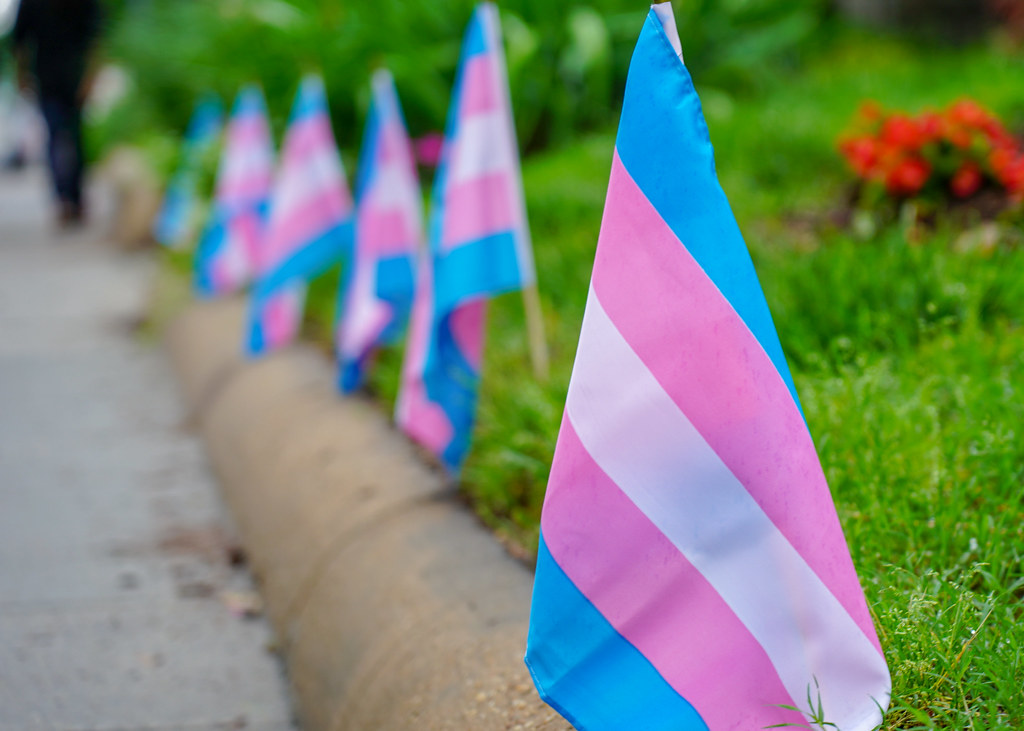The below piece was given as a speech at the Remember Stonewall rally on 1 July 2023 in Te Whanganui-a-Tara Wellington
Kia ora koutou, ko Serah tōku ingoa. I use she/her pronouns. I’m a member of the International Socialist organisation, and of Queer Endurance / Defiance. I’m queer, and I’m proud of my identity as a transgender woman. I’m also critical care paramedic, and I’m here to make a contribution to the kōrero about our healthcare system. I’d like to draw on my experience working within that system to highlight four critical weaknesses, and touch on what we might do to address them.
First, there’s an insufficiency of training for healthcare workers specific to gender identity and recognition, acknowledgement, healthcare needs, and healthcare solutions. This is beginning to change, thanks to our visibility and ongoing mahi advocating for acknowledgement of our humanity. But overall the pace of improvement looks and feels glacial.
Second, biological essentialism is baked into many aspects of the healthcare infrastructure. An example is a pre-hospital electronic patient documentation system that, despite half a decade of feedback, has stubbornly remained as only identifying patients by “sex” from one of the following four categories: “male”, “female”, “unknown”, or “indeterminate”. This is, honestly, a tone deaf failure to recognise social progress. Tatauranga Aotearoa Stats NZ has developed a significantly better categorisation approach which could be immediately adopted across the health sector.
Third, the under-resourcing and resource mismanagement prevalent across the healthcare sector leads healthcare workers to be overworked and overstressed. The result is what’s called ‘compassion fatigue’ – our clinicians have often not had their own mental and physical health needs adequately met, and they are exhausted.
Fourth, there are insufficient patient-guided treatment approaches and inadequate referral pathways. Health is complex, and no single worker could ever be an expert in every aspect of healthcare. So two solutions are needed. Clear guidelines and can empower GPs and their patients to keep many decisions within the primary health setting. And when a patient is referred to a specialist, that pathway needs to be able to accept the patient and continue care within a reasonable timeframe. Trans people currently suffer from a lack of functioning of either solution.
So what can be done? The training of new health care workers must include significant material acknowledging the existence and the healthcare needs of transgender people; health infrastructure needs to be brought into the 21st century, including ways of documenting people’s identities that aren’t demeaning; we need to employ way more staff across almost every field of health, and we need the working conditions of those staff to be dramatically improved so they don’t burn out; and we need good patient-centred guidelines for the treatment of transgender patients within primary health and good resourcing of specialist fields to ensure we don’t die of old age waiting for a referral. I’d love to see executive managers, board members, and government ministers be held accountable for decades of gaslighting healthcare workers for failures that are systemic. I’d love all areas of the healthcare system be honest with the public about failures.
I’d love to see the government tax capital gains, tax housing portfolios and luxury yacht wealth, and tax companies, and then use that money to properly fund our health system for the benefit of all. None of QED’s healthcare demands need decrease anyone else’s quality of healthcare. In the process of ensuring there are enough resources to meet these demands, the government can ensure the healthcare system is funded to meet everyone’s needs. We can demand increased resourcing of the entire healthcare system. We can demand a better life for everyone.
Ngā mihi.
A recording of the speech can be viewed here: https://www.youtube.com/watch?v=bH_7iXFmHRI









